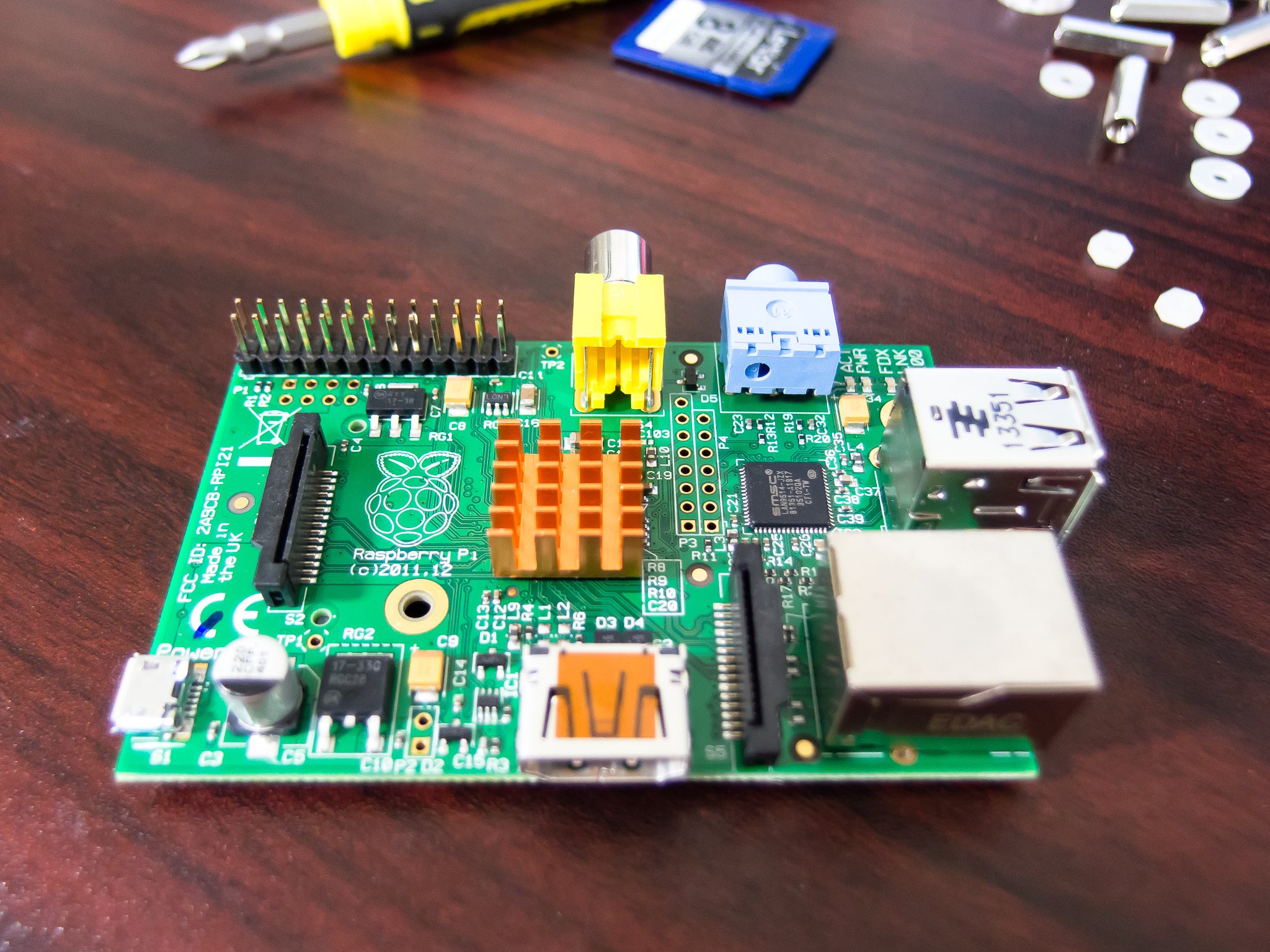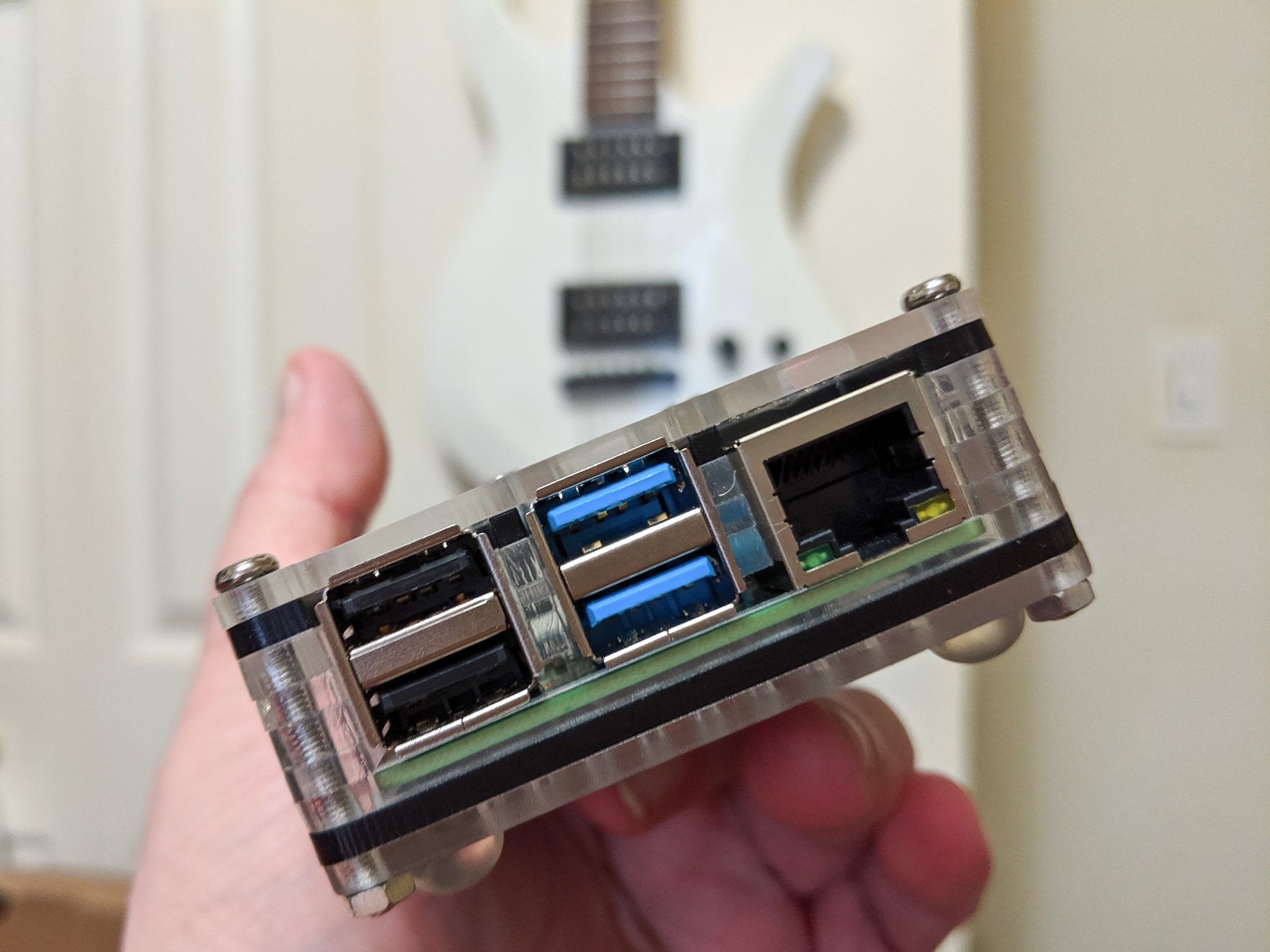Best answer: The Raspberry Pi is a small single-board computer designed originally for the education segment. It's evolved into a project board that millions of people use because of it's price, ample documentation, and enthusiast community. You can do just about anything with a Raspberry Pi.
- The new and improved version: Raspberry Pi 4 ($45 at Amazon)
- A year older, but still great: Raspberry Pi 3 B+ ($41 at Amazon)
A little history
It's the little circuit board that has captured the hearts and minds of the makers, the tinkerers, and the hackers.
However, the Raspberry Pi is more than that. It's the gateway to the Internet of things, and the tool to teach the next generation how to create it.
The Raspberry Pi is a great tool to teach programming, but it's also a great small PC for your home.
In 2006, some great minds at the University of Cambridge's computer lab started to notice a difference in the applicants for the school's Computer Science program. The hackers, hobbyists, and electronics aficionados that made up the bulk of the students applying in the 1990s had been replaced by folks with little to no experience in the darker arts and if anything, had mostly web-programming experience. While there's nothing wrong with web-programming, the world needs nerds, too. So members of the school got together and did what they could do to tackle the problem, and the Raspberry Pi was born.
Fast forward to today, and the idea has blossomed into the Raspberry Pi Foundation. A low-cost, highly-capable single board computer — the Raspberry Pi — is available to help teach computer science and electronics to both this generation of makers as well as the next.
And you know what? It's working. Inexpensive hardware combined with a pool of competent engineers and programmers willing to get dirty and share both the how and the why have made the Raspberry Pi a tool that's unparalleled for students and hobbyists alike. It takes more than just making the hardware available, and the support and interest of academia, businesses, and the community make the Pi a gateway to the next step in the computing revolution. Everyone involved wants you to be a part of it.
The basics
The Raspberry Pi is a small (it's the size of a credit card), single-board computer that you can connect to just about any TV or monitor. All you need to do is add a keyboard and you'll have a complete and functional desktop computer. Plus, it all costs under $100 to get started.
What makes the Raspberry Pi so great is the developer community behind it.
The current version — the Raspberry Pi 4 — has an ARM CPU and on-board graphics chip (the Broadcomm BCM2711) and 1GB, 2GB, or 4GB of RAM at its heart, as well as it's own Wi-Fi and Ethernet controllers and all the inputs and outputs that your bigger, more expensive desktop computer has. It's no powerhouse, but it's comparable to any desktop you might have had in the mid-2000s from a company with cow patterns on the box. Even better, you can work with dual 4K monitors thanks to the Raspberry Pi 4's powerful GPU.
With open hardware, there are plenty of options for the software — including an Android Things version for last year's model 3B+. With a little setup, you can have a working system with a full GUI that can browse the web, help do your homework, or get down and dirty with hacking, prototyping, and programming. I originally wrote this blog post on a Raspberry Pi. It's really is a real computer.
The best part is that none of this is hard. Follow a few easy steps and you're set up and ready to go. None of the down and dirty is required to enjoy the Raspberry Pi if you don't want to go down or get dirty.
Beyond the basics
For some of us, building a tiny computer is not enough. Thankfully, The Pi comes complete with inputs and outputs that are readily accessible to make it connect — and interact — with the outside world. On the board, you'll find JTAG headers, Ziff sockets for video input and output devices, and a powerful GPIO (General Purpose Input Oput) header. Using things like sensors, or motors or optocouplers, we can connect devices to the Pi and control them.
Welcome to the Internet of things, DIY style.
I've spent a lot of time fiddling with automation equipment, machine vision systems, and robotics both as a job and for fun. Because of this, I consider myself a pretty good judge of what's good and what's not-so-good when it comes to electronic peripherals. My old purchasing agent might have disagreed, but I know what works best and why it works best. This is why I think everyone interested in tinkering needs a Raspberry Pi.
Let's have some fun
There are plenty of other options to use on your workbench, and many do some things better than the Pi, but none have the level of support that the Pi does. This goes for the board itself, as well as the hundreds of "accessories" that were built to connect to it. Driver support, sample code, and the general knowledge that comes with something like a camera board or motion sensor for the Pi make things easy to do and learn. I can pour through man pages, schematics, and documentation because I spent years being taught how to do it and what to look for, but I think that's a sure-fire way to turn off an enthused developer who needs a little guidance. You'll not find better support for any other project board.
If you're an accomplished technician or electronics buff, you'll love the availability of "stuff" designed to use the Pi in your projects. If you're just getting started, you'll love the fact that there are plenty of people to tell you where to begin, and where to go next.
Whether you want to build a cheap computer, a dedicated media or retro-gaming PC, or build some cool connected gadget, the Raspberry Pi is the best product to start with.
New kid on the block
Raspberry Pi 4
Big bump in power
The Raspberry Pi version 4 is a bump up in every spec from the previous model. It's also available with three different memory sizes — 1GB, 2GB, and 4GB — to be the right fit for any project.
Tried and true
Raspberry Pi 3 B+
Still great
The Raspberry Pi model 3B+ is still an awesome little PC board, even when outclassed by its beefier sibling. The good news is that it's still going to keep doing everything it always did and should be supported for a few more years.







Tidak ada komentar:
Posting Komentar